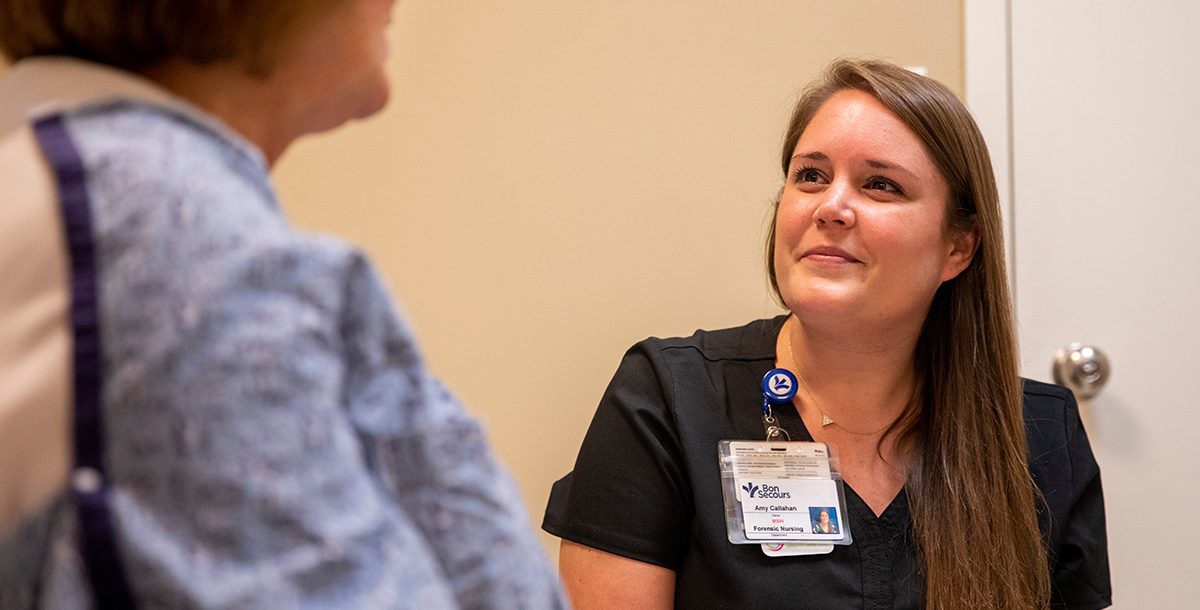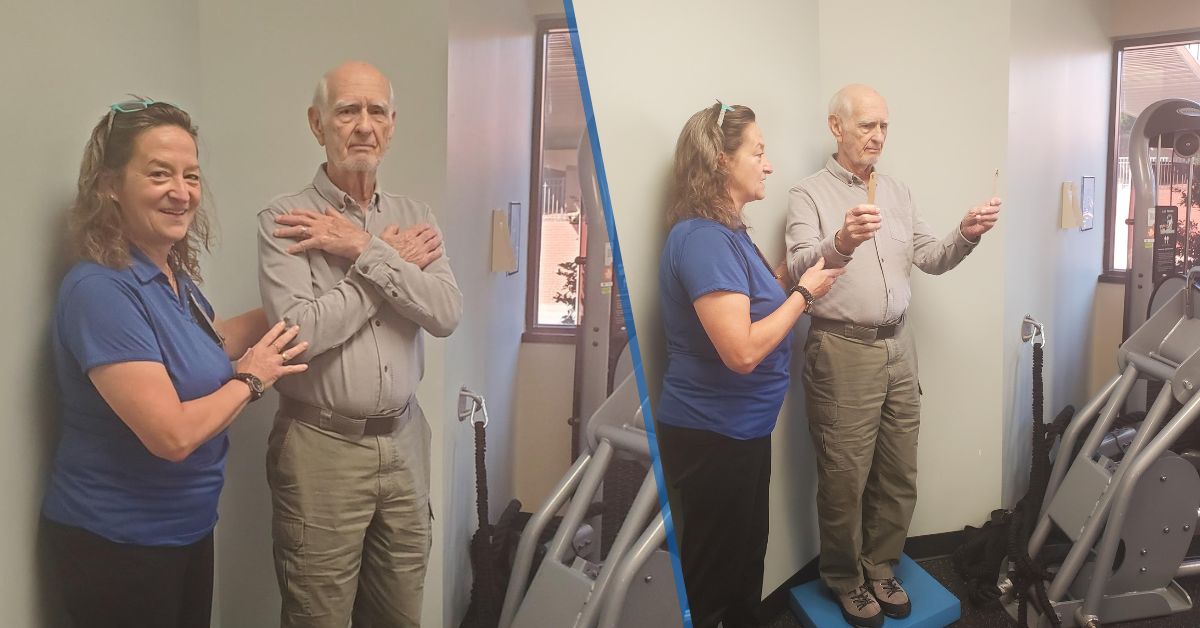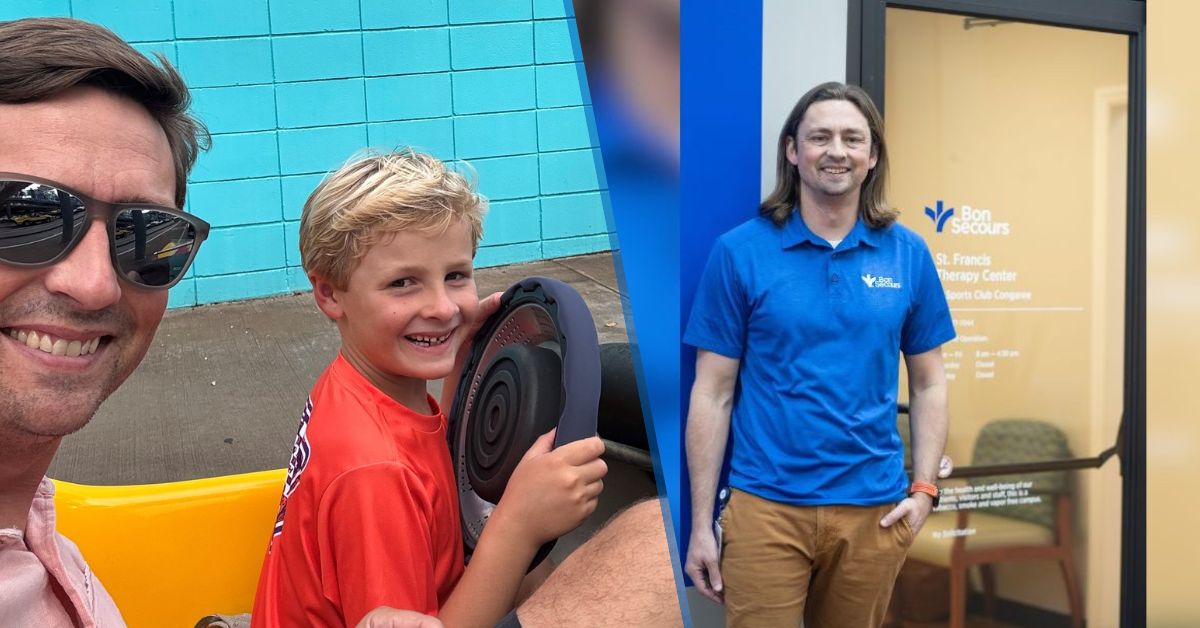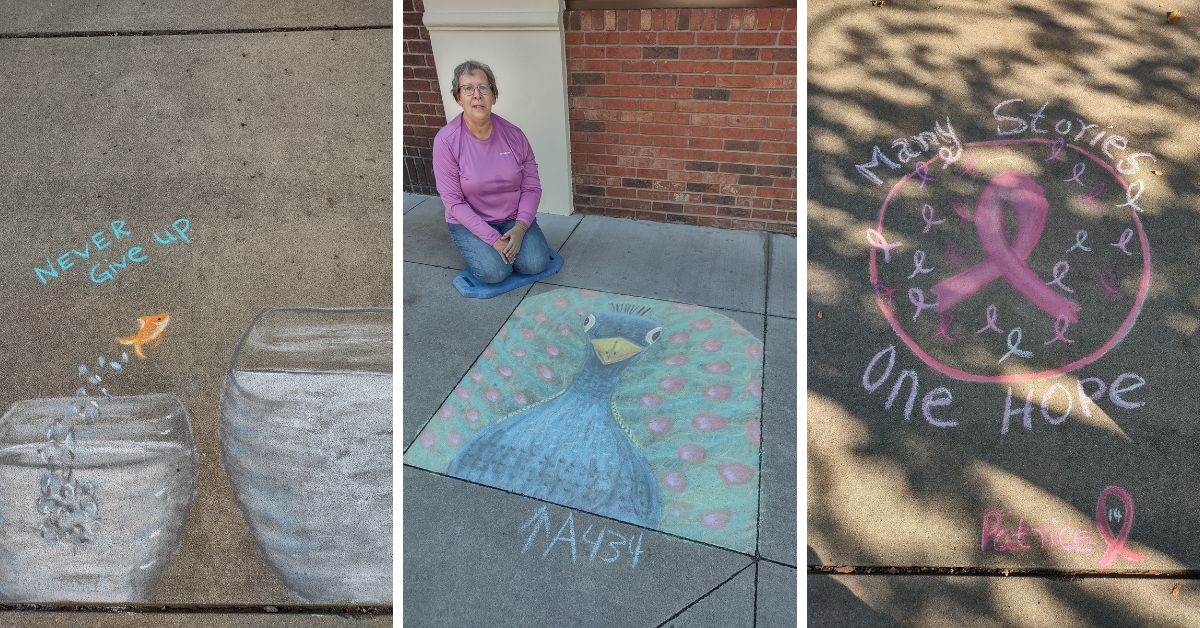January is National Human Trafficking Awareness Month and a time to highlight an important group that cares for the victims of this crime, our forensic services team.
Meet Amy Callahan, a hospital violence intervention program (HVIP) advocate. She is a member of the forensic services team in our Richmond market. Read her firsthand account below of what her work entails and how it helps support some of the most vulnerable victims in the community.
My role as an HVIP advocate is to provide bedside hospital accompaniment to survivors of all ages who have experienced sexual assault, intimate partner violence, domestic violence or human trafficking. During their time at the hospital, I accompany these patients throughout their forensic exam. I also provide support throughout interviews with law enforcement and ensure patients receive all appropriate resources available.
Accompaniment also includes providing emotional support to survivors after a trauma occurs. Our team helps survivors normalize how they are feeling in that moment, educate them on the effects of trauma on their physical and mental health and help connect them to different resources in the community.
For me, patient care always comes first.
As you can imagine, building rapport and establishing trust is critical from the moment we engage with the patient. We want all our patients to feel validated and comfortable to share their trauma.
Engaging with our patients is what I enjoy most about my job as an advocate. Empathy is one of the key components of engagement with our patients because it fuels connection and trust. Empathy includes recognizing a survivor’s perspective as their truth because many survivors are told that everything is their fault.
Creating a sacred space where survivors can feel safe and share their trauma is critical in engaging with patients.
Advocates also follow up with patients after their time in the hospital to ensure they are connected to support systems and resources they need to maintain safety measures, as well as address their mental health needs. Throughout this whole process, we are proud to work collaboratively alongside our forensic nursing team and provide a trauma-informed approach to patient care.
When I think about the faith-based aspect of our ministry, I think about compassion. In our Bon Secours values, it speaks to a recognition of “being with” is as important as “doing for.” So much of our roles as advocates is “being with” patients, meeting them where they are and holding space for them to share their trauma.
I know I wouldn’t be able to do my job without my teammates.
With our team approach, we rely on each other to ensure and manage a work/life balance. Most of the work we do can contribute to vicarious trauma, so our team helps remind one another of being mindful of our own mental health needs. I want to say to my teammates thank you for showing up every day and being an advocate for our patients who often don’t feel like they have a voice.
Overall, this job has taught me to walk through life with a mindful perspective of trauma and its complex effects on a person’s body. Also, I’ve learned that it’s not always a verbal response that makes someone feel better but a connection. The ability to connect with patients who are sharing something that is incredibly painful is truly humbling for me.
Learn more about our forensic services.





